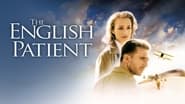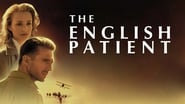john_siv
Cinematically beautiful, well paced and superbly acted drama that kept me well engaged throughout. Despite this though, I was a touch underwhelmed due to the reputation this has as an Oscar-winning tearjerker. What holds this film back from greatness is the lack of likeability of the lead character. Don't get me wrong, Ralph Fiennes is on incredible form with the script he's given, but am I the only one that can't quite get behind a character that so blatantly and unscrupulously makes a play on a married woman? I was rooting more for Colin Firth to take him out with the duster than for the romantic leads to 'live happily ever after'. I just can't shed any tears for the woes of a pair of romantic leads that are so boldly engaging in adultery. That so many people have done I think speaks more about the decline in moral standards in society than anything else.Wonderfully made picture, but the questionable morality holds it back from true greatness. The production code used to get stick back in the golden age, but it was there to make sure pictures were made to deliver the right messages.
martin-intercultural
I watched this film 20+ years after its original release. I did have some apprehensions - e.g. I thought it was "about the war"; and I knew for a fact it was very long.
Overall, it has aged well. To my relief, the plot is not so much about the war, but rather about civilian people swept up in the war.
Was the movie too long? It was. Not necessarily boring or dragged out sort of long, mind you. But I do think the tale could have been told just as powerfully in 90 minutes as it was in 162: The man with no face - use him to frame the story; lose the rest. Punjabi guy searching for landmines and/or washing his hair? I am all for a good interracial romp, onscreen and off, but really -- what did he add to the story? Cut. The Willem Dafoe character? Cut.
Lastly, and not to be a complete heretic: I love French cinema, and I can see how the part-Slavic La Binoche may have been a revelation to 90s US audiences, what with her Deneuve-esque power of projection coupled with a Bette Davis-style ability to "do nothing" in the face of great turmoil. Personally I found her role in this film to be one of a glorified narrator, whose presence could have been confined to under ten minutes. And not only that. In truth, some of her zany but wholesome antics, midway through, set in the ruins of the bombed-out cloister, actually brought to mind the words "Nokia. Connecting People". Sorry; they did.
Ultimately, all of the above contributes little to, and greatly pales in comparison with, the main story, acted out solidly by Ralph Fiennes and rivetingly, refreshingly yet timelessly by Kristin Scott Thomas. This is where the wow factor is; we didn't need the distractions which only served to bloat this saga to nearly three hours in length.
pacoh1969
I completely agree with other comments here: hopelessly romantic, filmed in a similar pace to the original writing, wonderful panoramic scenes, nice romantic theme throughout and steeped in steeped in pseudo-historical reference. But ultimately a cinematic disaster with so many mistakes, technical and cinematic errors, which is why it is often a bye-word for disaster amongst cinema lecturers and students. And still it won 9 Oscars, including: -Best Picture Saul Zaentz -Best Director Anthony Minghella (before cutting off Caravaggio's fingers, one of the German officers asks in German "what about the Geneva Convention?" which is curious considering that the Geneva Convention on the Treatment of Prisoners wasn't signed until 1949 and came into effect in 1950) -Best Cinematography John Seale (despite crew or equipment or shadows of same being visible in almost every filmed scene) -Best Art Direction-Set Decoration Stuart Craig Stephenie McMillan (US flags in 1942 would not have 50 stars but 48) -Best Costume Design Ann Roth (despite US soldiers wearing Russian WWII army helmets and 3 German officers wearing conflicting badges and rank insignia (one being a Waffen SS officer, none of whom served in North Africa)-Best Sound Walter Murch Mark Berger David Parker Christopher Newman (despite thunder incorrectly and unnaturally added to a sequence of a thunderstorm, and the flash, bang and shock-wave of an exploding bomb being experienced simultaneously at a distance) -Best Film Editing Walter Murch (Despite 3 scenes being sequenced incorrectly in the final movie)One must ask why Ondaatje/Minghela were so sadistic? An apparently injured (terminally) pilot is found with horrific burns in North Africa (Libya?)) and is carried by road to Egypt where he is put on a hospital ship and transported to Sicily and proceeds to follow the front line up through Italy until a Canadian nursing officer takes it upon herself to leave the convoy to save the patient any discomfort etc etc WHEN IT WOULD HAVE BEEN EASIER TO simply place the patient on board the hospital ship in Tobruk or one of the many functional Allied ports in North Africa and send him directly back to Britain (as they thought he was English)...seems a little mean to the poor guy? The scriptwriter should have known that Ethiopia is not, as Katherine observed, in North Africa...tsk tsk! A disaster if a movie it may be, but it still strums the heart-strings....gets a tear every time...and I must have seen it 15 times in all
grantss
Late-WW2, Allied-occupied Italy. A nurse at a field hospital is tending to a badly burned English pilot. He has no identification so is referred to as "The English Patient". Slowly she starts to piece together his background, including a passionate yet doomed romance with a married woman.9 Oscar wins, including Best Picture. You have got to be kidding! I really don't know what all the fuss was about, as the movie is pretty dull. Empty, style over substance and pretty much schmaltz for schmaltz sake. One of the worst Best Picture Oscar winners.It wasn't like it was such a bad movie year - you had Fargo, Jerry Maguire, Sling Blade, Trainspotting, The People vs Larry Flynt, all of which are infinitely better than this.






